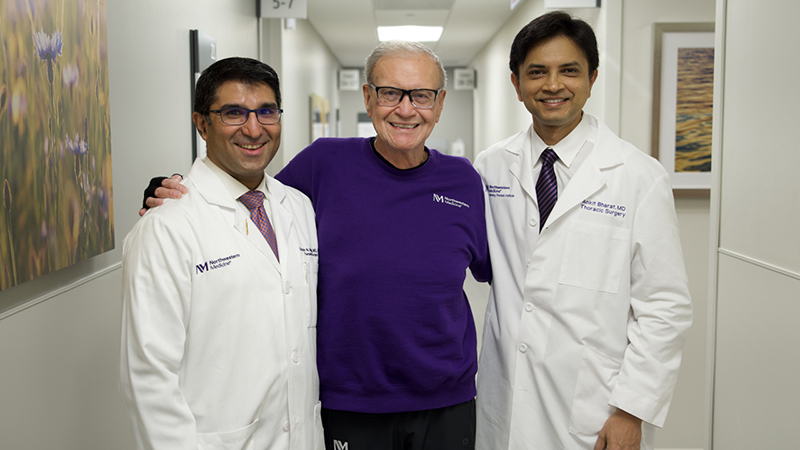Restoring Communication After Brain Injury
How One Family Found Hope
Aphasia, a communication disorder that results from damage to parts of the brain that control language, can be frustrating. After Steve Davis, 47, experienced a stroke, he and his family turned to the Northwestern Medicine Aphasia Center at Northwestern Medicine Marianjoy Rehabilitation Hospital for help.
What Is Aphasia?
Aphasia is an impairment in the use of language due to damage in the brain, most commonly due to stroke. It can affect the ability to speak or understand speech, as well as the ability to read or write. According to the National Aphasia Association, approximately two million people currently experience aphasia, with 180,000 new cases each year. Losing the ability to communicate is a devastating and frustrating experience not only for the individual affected, but for those who are interacting with the person.
Finding Hope
After his stroke, Steve sought help from the Northwestern Medicine Aphasia Center, led by speech-language pathologist Michelle Armour, SLP. His father, Bill, and mother, Corinne, attended sessions with him. “Steve’s recovery from aphasia was difficult until Marianjoy initiated this clinic,” says Bill. “We are now seeing him looking forward to each session with enthusiasm.”
Corinne says the program increased Steve’s confidence as well as his abilities. “His speech is becoming more clear and meaningful to him, adding new words and even voicing complete sentences at times. The Aphasia Center has worked wonders for him,” says Corinne. “This program offers hope where despair had existed.”
Continuing the Journey
Though improvement is possible, aphasia often remains a challenge for the duration of a person’s life. The center offers small group sessions that provide a comfortable and supportive environment in which aphasia participants can practice their communication skills through real-life activities, such as math, cooking, fitness, music, technology, recreation and book clubs.
“The variety of workshop programs in small group settings has provided Steve with the ability to respond and participate with others, knowing he is not judged by what he cannot do, but by what he can contribute to the group,” says Bill. Each session focuses on improved language functioning, increased socialization, heightened independence and improved quality of life.
“We provide participants and their caregivers an opportunity for continued language treatment in an encouraging and social atmosphere, while keeping the client’s individualized goals at the center of their care,” says Armour.
Care for the Caregiver
Caring for a loved one with aphasia can take its toll on the family. Bill and Corinne say that they, too, have benefited from the caregiver aspect of the program, in which caregivers can share their experiences and tips on how to handle adjustments in both their own and their loved ones’ lives.
The Aphasia Center is funded in part by the Northwestern Medicine Innovation Challenge Grant, sponsored by Superior Ambulance Services. The competitive grant program helps fund innovative approaches to improve ambulatory care delivery at Northwestern Medicine. This truly innovative center continues to offer opportunities for patients like Steve to better communicate and, above all, provides hope for patients and their loved ones.




